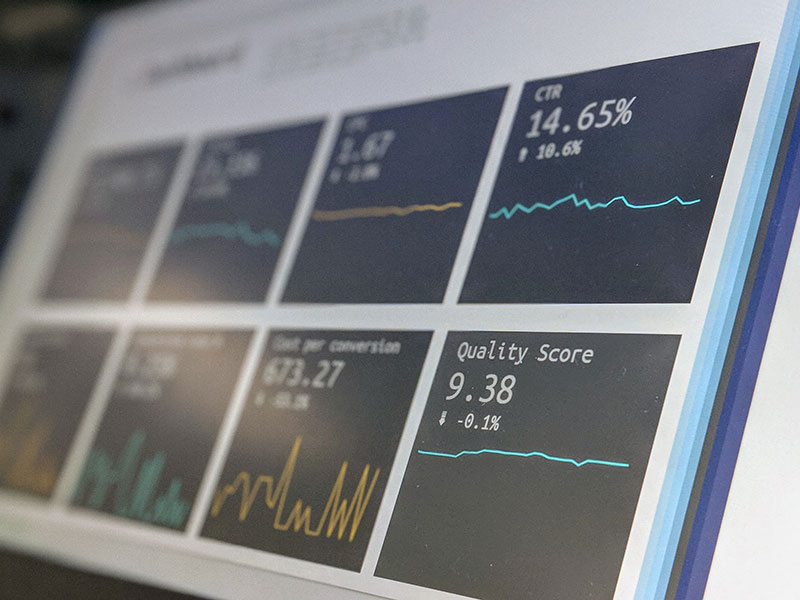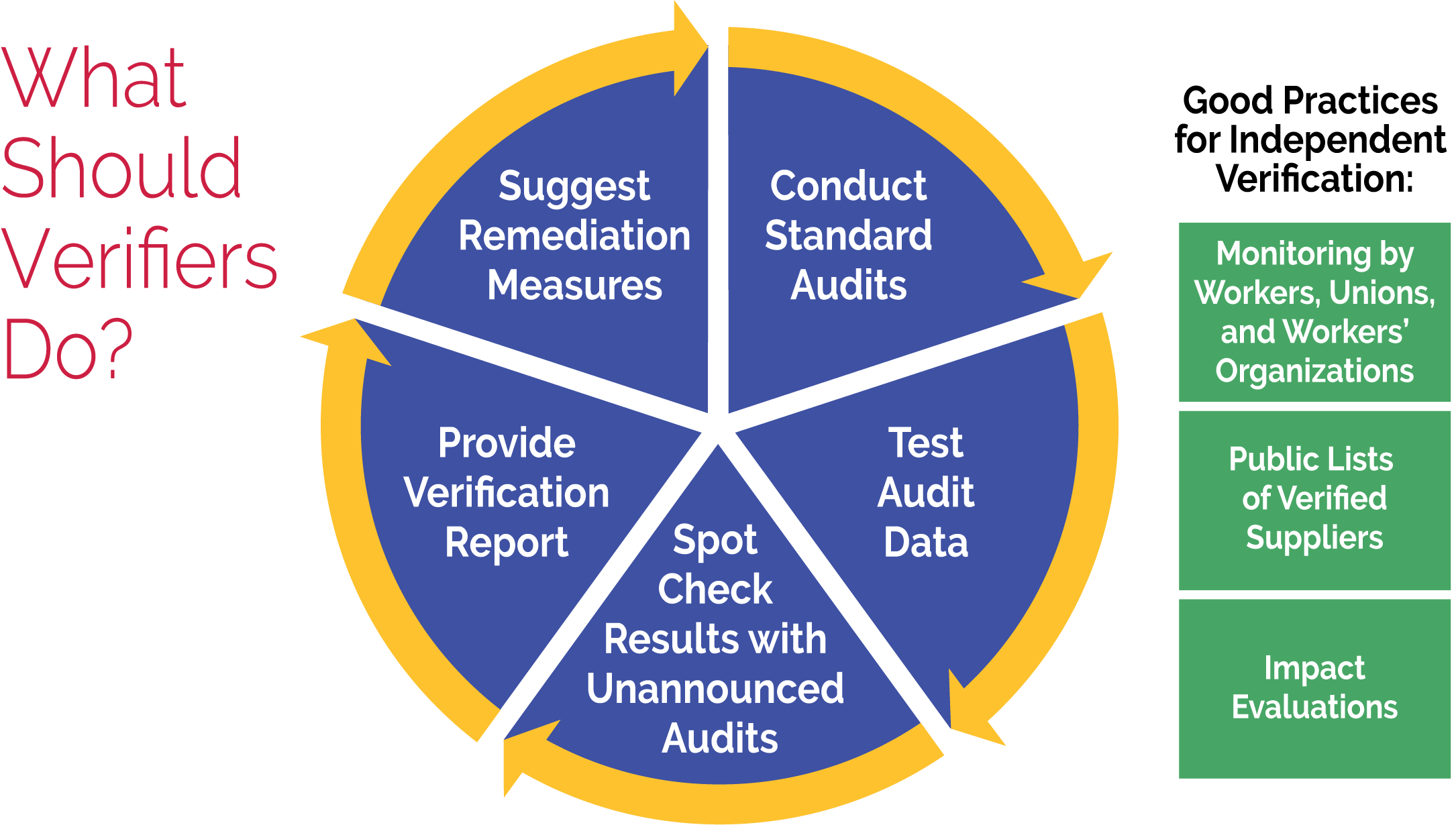Key Topic: What Should Verifiers Do?

Photo Credit: Stephen Dawson_Unsplash

Verifiers should:
- Conduct witness audits, which consist of a verifier first accompanying and observing audits carried out by the company’s existing auditors (internal, external, or independent).
- Test audit data to confirm that company data systems are reliable.
- Use unannounced witness audits to verify that company policies are being implemented appropriately. Verification should include specific cases of remediation to examine whether they have been effective.
- Provide the company with a report identifying weaknesses found in the company’s social compliance system and system implementation.
- Suggest remediation measures the company may take to address the weaknesses.
Other good practices for independent verification include:
- Democratic and legitimate labor unions and empowered workers serve as “independent monitors” in a workplace; if a union is present at the worksite, it should be aware of safe ways to bring issues to supplier and company management. Similarly, individual workers and community groups may be aware of issues that are not detected by auditors.
- When companies publish a list of their suppliers verified by an independent verifier or monitor, they provide NGOs and multi-stakeholder groups the opportunity to raise issues.
- An impact evaluation isolates the effects of a program or service by comparing a treatment group (those exposed to the program or service) to a control group (those not exposed to the program or service) that is similar to the treatment group.

 Step 7: Independent Review
Step 7: Independent Review


